

Discover more from A Stylist Submits
Writers Imitate God's Genesis
Can we better enjoy writing by walking its parallels with Creation?
In the beginning, —
How to complete that sentence?
There’s the obvious “In the beginning God created in the heavens and the earth,” of course.
But there’s also “in the beginning, the universe was created. This has made a lot of people very angry and been widely regarded as a bad move,” from the first line of Restaurant at the End of the Universe by Douglas Adams. The sardonic add-on (“widely regarded as a bad move”) doesn’t eliminate the “created” of the first clause, though it’s now passive to remove the implication of a Creator.
Or there’s the version of this line that starts The Velveteen Rabbit, by Margery Williams: “There once was a velveteen rabbit, and in the beginning he was really splendid.”
When fiction begins, it is a new creation. Restaurant at the End of the Universe has its galactic refugees and its in-world “Hitchhiker’s Guide to the Galaxy,” The Velveteen Rabbit has, well, its splendid velveteen rabbit, and neither had existed until they began in their first respective words. Where something begins, it is a creation.
Parallels of Genesis, God’s and Ours
Humans create nonstop. We create for information, for memory, for efficiency, for utility, for spite, for our children, for greed, for beauty, and for worship. The oldest cave drawings known to man—a blurred image flanked by hand-prints in Sulawesi, Indonesia—depicted the male babirusa (the local deer-like animal) over 35,000 years ago. My wife’s slideshow of planned vegetables to plant this spring came of a clear December morning, saved in a Google slide. Ourselves made, we are makers in our own right.
But artistic creation—at least to me, the fully-unbiased reader-aesthete-writer—seems the creation that most clearly imitates God’s own practice, since in our art we seek most nakedly the transporting beauty which echoes heaven’s own glory. And—again, impartial and detached commentator hat I am—I propose that within artistic creation there’s a still-more special affinity for creation through words. God, after all, spoke the world into existence by the words of His lips. I can’t ignore that the first Creation was creation of a poem, and so I can’t do more than speak about words as one central source of the imago dei, of “the Word” as one title of Christ sent from heaven, of literary creativity. There are parallels between divine Creation and its imitations in painting, music, and other arts—I just won’t include them here
Mine are three pillar-parallels of written creation, all of which I’ll explore once I finish clearing my throat and explain the why of writing this essay. Why ponder creation when creating is the more pressing call? Why bother to look from the fields up into the clouded stratosphere, when there is so much furrowing to do?
Because understanding how our art began with God’s creation and draws from His example sweetens the arts—with gladness.
But hold that thought for now, y’all, for we have pillars to tour.
Forming What Was Formless: the Void and the Smith
In the impeccable ring of the King James Genesis, the stage of the first creation was a blank void, without even a stage or curtain: “And the earth was without form, and void; and darkness was upon the face of the deep.” It’s the formlessness that Donald Antenen translated as “Earth / wild and wooly / Darkness / on deep,” and it’s the first condition God faced as He created.
And, facing formlessness, His creation was all the more total for crafting form: “light” divided from the darkness, “the firmament Heaven” to divide the waters from the waters, “lights in the firmament of the heaven,” “every living creature that moveth” in sea and sky, and both man and woman in His own image. What a splendor of creation, even in this incomplete sample I’ve just listed. Even the full Genesis account, a mere 31 verses, seems understated given how much God forms from nothingness.
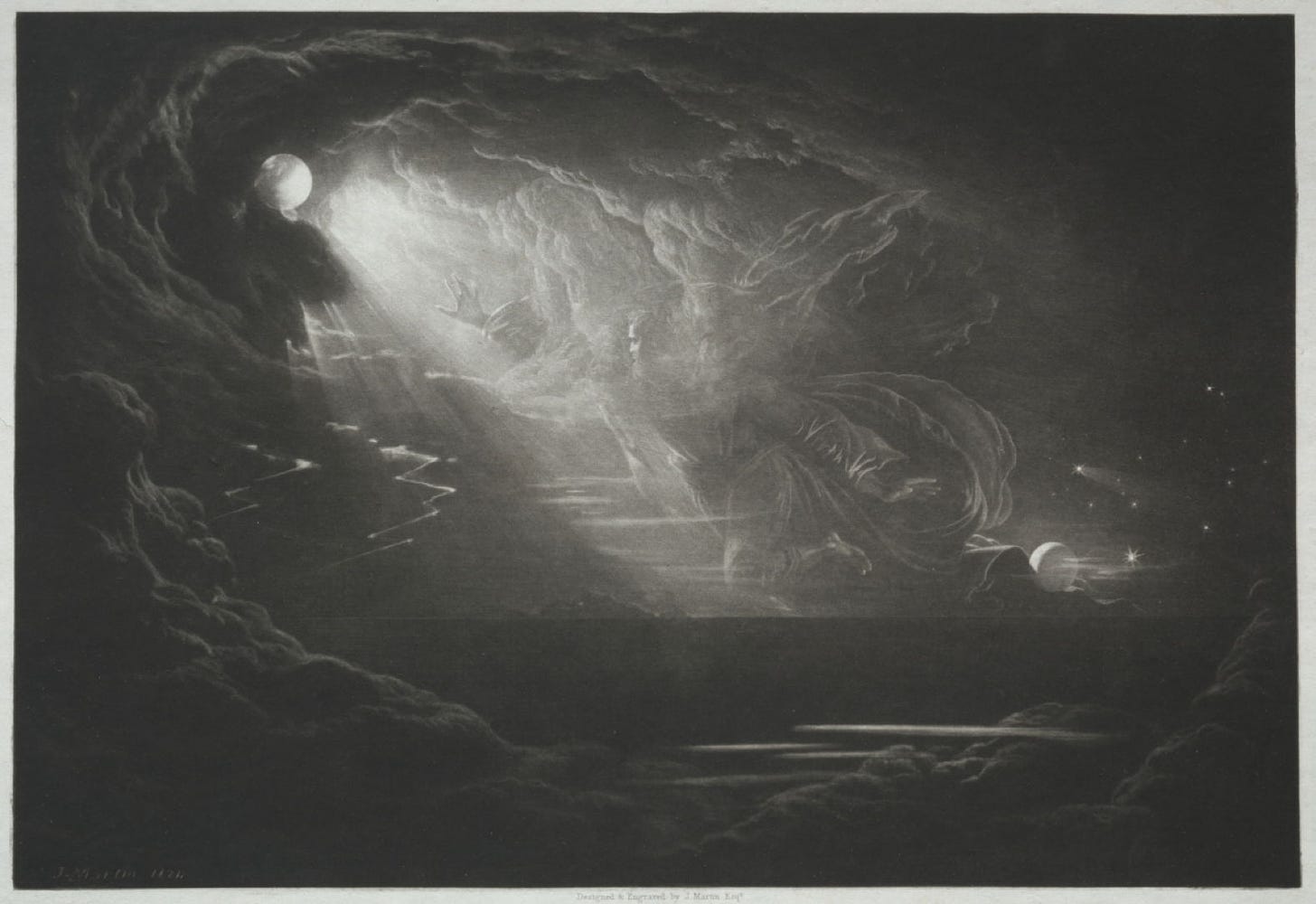
Here, the complementary account from Book 7 of Paradise Lost comes to mind, for it’s the section where John Milton luxuriates in the full, poetic reams of this total creation. As Milton (a poet more than a theologian) tells the Creation account through the angel Raphael, Christ descended into Chaos at God’s direction to create with “[His] overshadowing Spirit and might,” “Girt with Omnipotence, with Radiance crown’d” to make His father’s new world from “the vast immeasurable Abyss / Outrageous as a Sea, dark, wasteful, wilde” before Him.
Here is how God (through Christ in the Triune Godhead) begins to create:
Silence, ye troubl'd waves, and thou Deep, peace, Said then th' Omnific Word, your discord end: Nor staid, but on the Wings of the Cherubim Uplifted, in Paternal Glorie rode Farr into Chaos, and the world unborn; ... He took the golden Compasses, prepar'd In Gods Eternal store, to circumscribe This Universe, and all created things: One foot he center'd, and the other turn'd Round through the vast profundities obscure, And said, thus farr extend, thus farr thy bounds, This be thy just Circumference, O World. Thus God th' Heaven created, thus the Earth, Matter unform'd and void: Darkness profound Cover'd th' Abyss: but on the watrie calme His brooding wings the Spirit of God outspred"
All these golden lines, unerringly finding the true north of Beauty. And that’s only the start of God’s creation, as Milton imagines it. Still to come from Book 7 are the light, the heavens, the creatures, and the imago dei of Genesis 1.
To our frail, pale extent, writers form things from nothingness.
Where before there was a blank notepad, napkin, or Word document, the writer forms meaning by placing new symbols there. Our placement is the literal formation in the face of formlessness, but its figurative counterpart conceals the same divine fire: where before there was a chaos of half-ideated imagery, the writer creates a new entity by the persnickety articulation of words. Certainly, something exists mentally before it’s written (and revised), but it exists without shape, more amorphous sensation than entity. Before writing we usually have the unmade darkness upon the face of the mental deep.
Language channels the unmade into definite shape and composition, not only in the first articulation but in the last selection, the choicest phrase. Think of metallurgy, where liquid metal orange with untouchable heat is cast into the silica sand mold which will give it shape. Language is the furrow of casting and the mold of the final statue, and the writer is the smith handling those tools to create anew from the unmade metals.
Perfection: the Point and Sustenance of Creation
After God forged His Creation from the previous nothingness of the abyss, He advanced His work one step further: “It is good,” He declared. (And thus He blessed critics among the first of His works, by the way.)
For each element He created, God passed this same three-word judgement. But perhaps judgement isn’t quite the word; I prefer nature. God created all things beneath Him to be good in their essential nature, and, having created them, He found them to naturally be good.
Not good as in, I’m feeling good now that I’ve drunk a glass of water and no longer suffer the coffee-for-breakfast stomach. Good as in pleasing to God’s highest, most exacting standards. Good as in perfect in His sight.
This perfection of divine handiwork, at least to my mind, answers the ur-question beneath Genesis 1: why did God create in the first place? To make Creation good by His own scale of judgement—to see it perfect and glorifying to Himself. Even the desecration of Creation by sin in Genesis 3, even the fall of man into sin’s doomed nature, welcomed total salvation through Christ, the promised and greatest avenue of God’s perfection.
If God creates for pleasing perfection, allow me a jab: why do we write if not to seek perfection?
We might write to communicate, to complain, to articulate our formless minds, to think more clearly, to jest, among other aims. But perfection is a flexible term. Any one of our goals in writing can be measured for quality, even to its highest point in perfection. Communication can become perfectly clear; jesting can become perfectly hilarious; complaints can become perfectly cutting; thoughtful minds can become perfectly articulate.
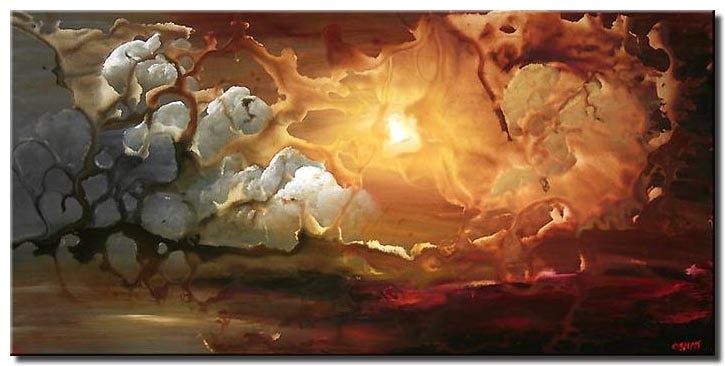
Well, not really. Right?
However much we refine our every word, no piece of writing can become fully perfect to its (human) creator. Perfection isn’t in the makeup of our human effort. It’s where we differ from God in the act of genesis. And yet, perfection can still sustain written creation, since it applies to every word the way a low silver moon applies to every evening landscape: as a guiding destination seen, loved, and never reached.
Constant approach to unattainable perfection seems my best goal. The attainable rewards of writing, I’ve found, rarely sustain the day-to-day, word-to-word consciousness required for it. Compliments, attention, audience growth, publication, payments, awards—all small rays of warmth that linger, fade, and dissipate within a moment. Not to mention that writing for them them means determining the quality of the work too directly from the opinions of others. Fully ceding the locus of meaning to someone else for their approval, as with art subject to political imperatives, springs the aesthetic trap which restrains both art and artist.
Of course, of course, of course, I love to hear anything from anyone who reads my work (especially from y’all). When I receive a compliment, I will fondly think on it for approximately 23.7 years. But no compliment is enough to convince me to keep at it second after second, because no compliment or other reward centers and sustains the writing. But a forever search for perfection? To me, that’s the unending challenge that does both.
It distills an odd and unlimited pleasure, the last of the pillar-parallels of creation.
Sweet Pleasure, Infinite Creation
When God surveyed His creation and stated its perfection, He enjoyed it. There’s His rest on the seventh day (Genesis 2:3) and His blessing of that rest, but there’s the later detail of God strolling through Eden “in the cool of the day,” a habit of enjoyment if I’ve ever seen one.
These instances of God the resting, strolling gardener are His enjoyment after the fact of Creation. What of His enjoyment during? It’s suggested in His repeated affirmations that all He saw was good, and it’s especially present in His blessing of the creatures of sea and sky, of man made in His image. “And God blessed them,” Genesis 1 repeats to us, and the words don’t seem the steel-sceptered decrees of a detached monarch. I trust these first blessings of God’s lips to be the overjoyed blessings of a new father beholding his children. His pleasure in His creation, then and now, is indescribable but familiar to writers.
God enjoyed His creation, and so can we, the created.
Because, for all the angst writers claim to experience in writing, I’d argue that every one of us feels some touch of God’s pleasure in creating.
As He did, every writer forms from what had been formless. Every writer knows the thrill of seeing his words construct small, new meaning. Every writer knows this pleasure of seeing that his work is good (or at least better than the previous draft). These are the thin-veined, autumnal shade of God’s pleasure.
In Liberties, the novelist David Grossman states these “pleasures of creation” with unabashed ecstasy. His pleasures flow from “inventing an entire fictional world out of thousands of facts and details,” all born of “the writer’s compulsion: to reach that alchemical development at which suddenly, through the use of inanimate matter — symbols arranged on a page in a particular order — we have conjured into being a life.”
Alchemical and conjured invoke the seeming magic of creation, the uncanny of nothingness-made-whole, and Grossman deepens his great pleasure by tracking its source: “A creative work represents, for me, the possibility of touching infinity,” he writes. “That is, the infinity of the human face. The infinite strings of a single heart, the infinity of an individual’s intellect and understanding, of her opinions, urges, illusions, of her smallness and greatness, her power to create, her power to destroy — the infinity of her configurations.”
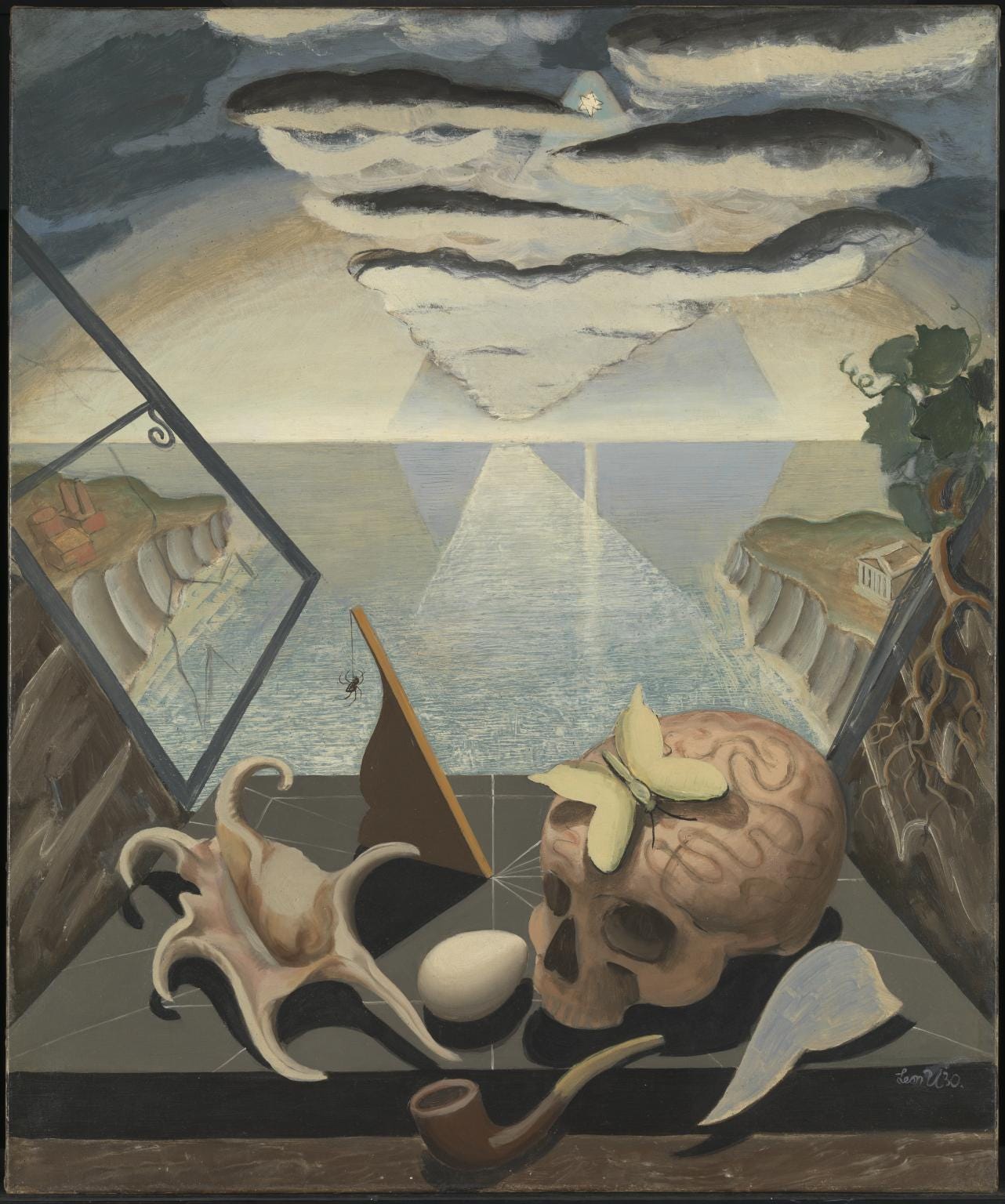
His evident pleasure in writing this infinity is sweeping even as Grossman extends its reach, finding “intellect and understanding,” straining to “opinions, urges, illusions.” Why else would he plunge ahead in the list while the em-dashed conclusion of “configurations” was always in mind, if not to revel in the lush pleasure of his sentence?
But creation, as Grossman tells it, is not merely enjoying the shade of a hedonist’s tree. It is also entry into our lives around us: “I began with the literary and I end with the real — with the reality of our lives. In my view they are inseparable.”
From literary to real, from dust to breath.
Grossman has named the gift writers can receive from their writing: ecstatic joy to leaven and sweeten the work.
And this joy is the fresh fruit for non-believing writers also. As much as I yodel about the God-given parallels, not every writer will accept the wondrous Milton-esque God who created, blesses, and enjoys. But every writer can ponder “the possibility of touching infinity,” of having “conjured into being a life,” because those descriptions match the work that dubs them writer. Because there are buds of pleasure here and there on the page, and writing without pleasure is too close to robotic transcription for us to accept it.
If emulation of a pleased Creator doesn’t drive you, pleasure can—pleasure in “the infinity of a human face.”
Why Recall Creation?
I honestly wish these pillars of form-giving, perfection, and pleasure will sweeten writing. Not only writing as an abstract, not only any writing y’all might be doing, not only any writing y’all might be enjoying as readers, but my own writing.
I stand by my experience of autumnal pleasure in what I get to do here, for it is often my little low-voltage thrill from fingers to eyes to page and through all parts again. And still I bear the need for reminders as to why I do this: why for God, why for my body of work, why for the pleasure He first demonstrated.
God’s people through history recall God’s promises to themselves, for hope by starlight and sustenance in the darkest mornings. Their recollection is my inheritance of the centuries also, which I enjoy but (more importantly) need. And so, created to Creator, I recall God’s creation, for His hope and sustenance.
Thanks for being here, y’all. I’ll be in touch again on January 24 with my short review of My Ántonia, by Willa Cather.




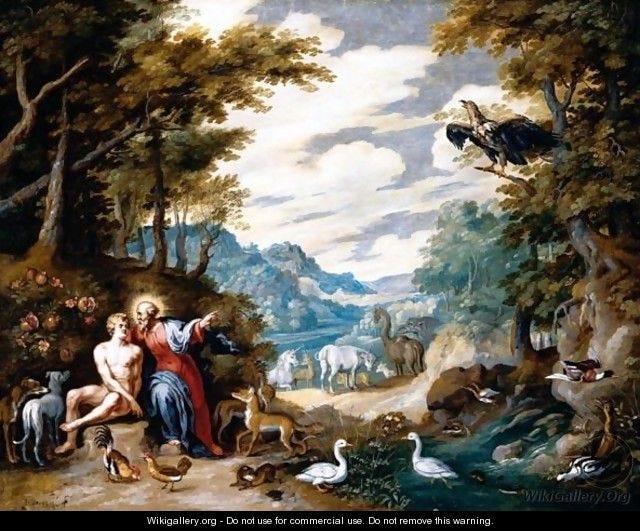






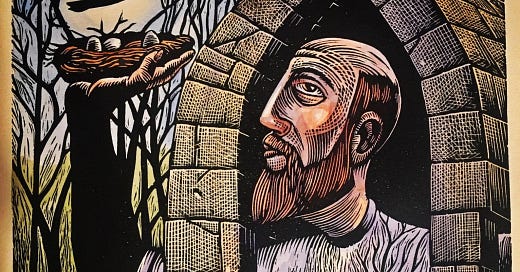

“These are the thin-veined, autumnal shade of God’s pleasure.” - and that was a beautiful sentence.
I’m struck by how the creation story begins with a void. We’re so boredom averse now, with our phones and Netflix to distract us from those empty moments where things percolate.
Thanks, Kevin. Genesis very much on my mind too. It clicked for me as a writer when I realised we’re all inside the story.